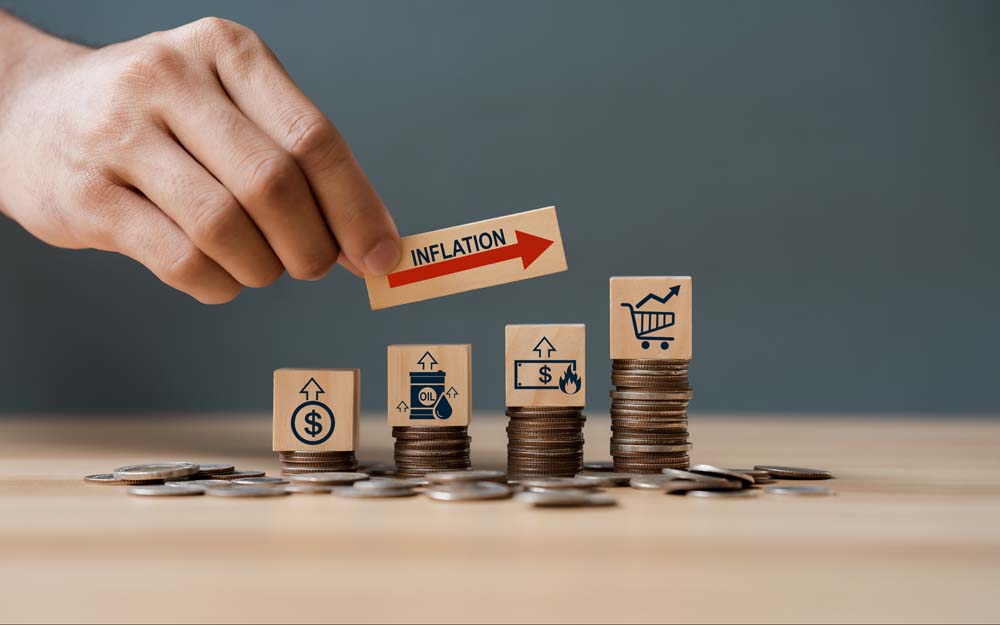Last Updated on 05/07/2023
Turkey’s high inflation rate in the past had posed several challenges to its economy, including reduced consumer purchasing power, increased production costs for businesses, and potential instability in financial markets. However, the decline in the inflation rate to 38.2% in June 2023 indicates positive progress toward achieving price stability and economic recovery.
Lowest Turkey’s inflation rate since 2021

According to official data released on Wednesday, Turkey’s consumer price inflation rate slowed down even further in June as the downward trend slowed.
According to data from the Turkish Statistical Institute (TurkStat), prices increased 38.21% last month compared to last year, down from May’s 39.59% year-over-year growth. Base effects may have contributed to the decrease.
The inflation rate in June was at its lowest point since December 2021, when it was 36.08%. From there, it increased to a 24-year high of above 85% in October 2022.
The annual reading decreased by more than 4 points in May as a result of Ankara’s free natural gas offer that month, which countered other price increases.
Figures below experts’ expectations
Following a sharp decrease in the value of the Turkish lira, prices rose by 3.92% from May to June when compared to a month earlier, according to TurkStat, reaching their highest level since January. It has increased significantly from April to May’s 0.04% growth.
Both the annual and the monthly results fell short of market expectations. According to the median projection in a Reuters survey, Turkey’s inflation rate would increase by 4.84% on a monthly basis. The survey predicted also that the consumer price inflation (CPI) would be 39.47% annually, and would complete the year at a rate of 51.5%.
New Roadmap to Ease Turkey’s inflation rate

Since President Recep Tayyip Erdoan’s reelection on May 28th, Turkey’s economic authorities have taken measures to battle inflation, including reversing to the conventional economic model after two years of monetary relaxation.
Raise of the benchmark policy
Last Thursday, Turkish central bank raised the benchmark policy rate by 650 basis points, bringing the one-week repo rate to 15% and designating it as the “first step” in reducing inflation.
In an effort to strengthen the Turkish currency, the monetary authority has also eased some of the macroprudential restrictions it had put in place. The 30% loss in the value of the lira this year is mirrored in domestic prices, fueling inflation in the country that depends heavily on imports.
After Turkey decided to pursue an easing program, which saw its central bank lower its key policy rate from 19% in 2021 to 8.5% in 2022, the inflation spiked in late 2021 alongside a loss in the lira.
New policymaker designated to Face Turkey’s inflation rate

The Turkish president appointed Mehmet Şimşek, a qualified policymaker, as minister of finance and treasury after. He also designated Erkan, a former Wall Street banker, as governor of the central bank.
The minister declared in his statements following the rate increase that the lira will be stabilized by predictable economic policies based on the market economy, a free exchange rate regime, and an inflation-targeting model.
Yet, price pressures are still quite high as core inflation, which does not include volatile items, increased by an annual 47.3% from 46.6% the previous month. According to TurkStat data, the domestic producer price index increased by 6.50% month over month in June, for an increase of 40.42% on a yearly basis.
In conclusion, the significant decline in Turkey’s inflation rate signifies an important step towards achieving economic stability and sustainable growth. This positive development reflects the effectiveness of monetary policies, fiscal measures, and structural reforms implemented by the Turkish government. Lowering inflation rates is crucial for promoting consumer confidence, attracting investments, and fostering a favorable business environment.
For more details about the Turkish economy and monetary landscape, fulfill the form below to get a free consultation with our experts.



